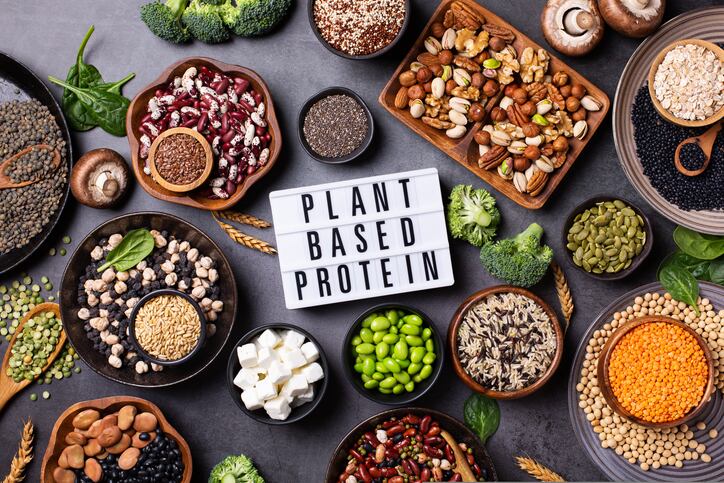Plant-based products cannot match – and don’t have to match – the health benefits that red meat consumption brings to a balanced and healthy diet, the Professor of Protein Structuring and Sustainability at Wageningen University said at the recent Plant-Based Protein Manufacturing Summit in Amsterdam.
Instead of aiming to mimic the healthy nutrients found in meat, said van der Goot, plant-based products should focus on those healthy nutrients only found in plants.
On top of the issues of price, taste and texture, the nutritional credentials are a challenge for the plant-based sector. The food industry has witnessed the proliferation of new plant-based meat and dairy substitutes that aim to mimic the organoleptic properties of their conventional counterparts. These plant-based alternatives are often presented as healthier than animal-based products. But this view is getting pushback from those who suggest many analogue products are unhealthy ultra-processed foods, lacking the health benefits that red meat consumption brings to a balanced and healthy diet.
As an example, take meat alternative Heura’s new technology revealed this week aiming to boost the protein content of its products so that it surpasses their meat equivalents.
‘Stop comparing plant-based products to meat’
But the plant-based sector is wrong to concentrate its efforts on attempting to mimic the nutritional benefits available from meat and dairy, said van der Goot.
The target market for the vast majority of these products, he explained, are flexitarians: those looking to cut down on meat and dairy for health, ethical or environmental reasons. They are therefore already getting the 'nutritional hit' of meat and dairy. They don’t need it from plant proteins.
This fact offers the plant-based sector a ‘golden opportunity’, he said, to focus on those health benefits only available in wholegrains, fruit, vegetables, legumes, nuts and seeds.
"I think if the focus is on mimicking the nutritional treats of meat or cheese via plant-based products, then you're playing a losing game. You'll always get the criticism that the bioavailability is not as high as the supplemented one, or you're compromising because the protein is not high enough, or you get complaints the product is highly processed.”
Don’t play off plants vs meat and dairy
The debate about the nutritional quality of meat and dairy versus their plant-based equivalents is timely. The FAO, for example, recently admitted that meat, eggs and milk play a ‘vital’ role in meeting global nutrition targets. It added that at a global level, plant-based foods may not provide sufficient nutrition to achieve public health targets. The infamous planetary health diet featured in the 2019 Eat-Lancet report, due for a second airing next year, has also received much pushback because of the low amount of animal source foods. It therefore fails to provide those vitamins and minerals – including iron, zinc, calcium and vitamin B12 – needed to nourish the global population.
"I think we really have to re-think the place and role and nutritional value of those [plant-based food] products,” continued van der Goot. “First of all, we should get rid of the protein transition term. I think the emphasis on protein makes it really difficult for plant-based companies to compete with meat and dairy.”
Instead, argued the food scientist, those regularly eating meat and dairy products “will benefit from a different nutritional pattern rich in vitamins; rich in phenolic compounds; rich in other minerals which are present in plants but not present in meat".
This nutritional focus, he claimed, would also allow manufacturers to justify the premium that the plant-based sector currently carries.





